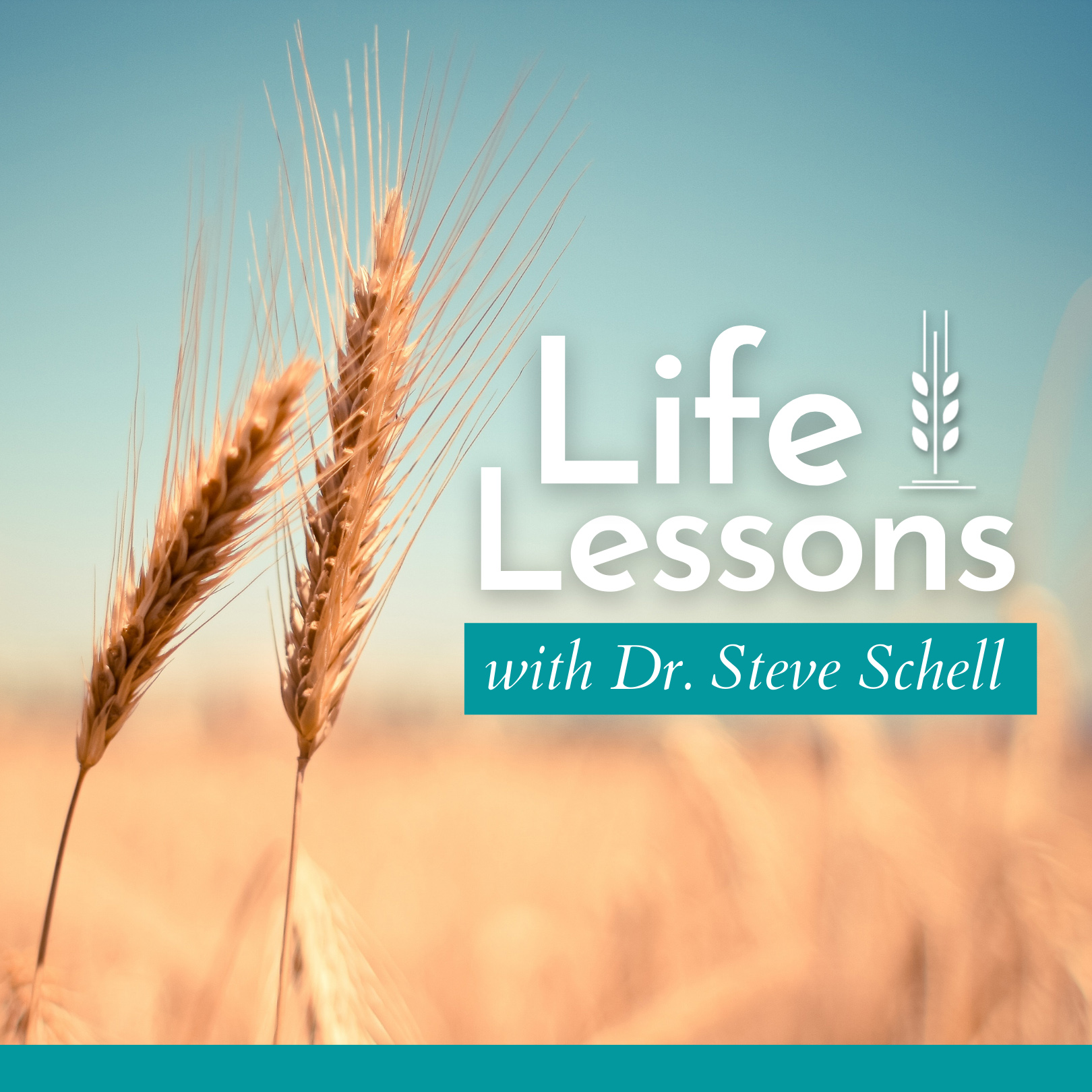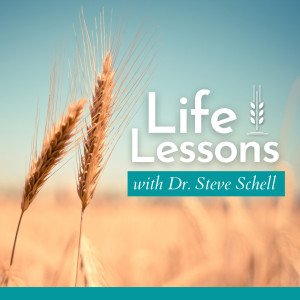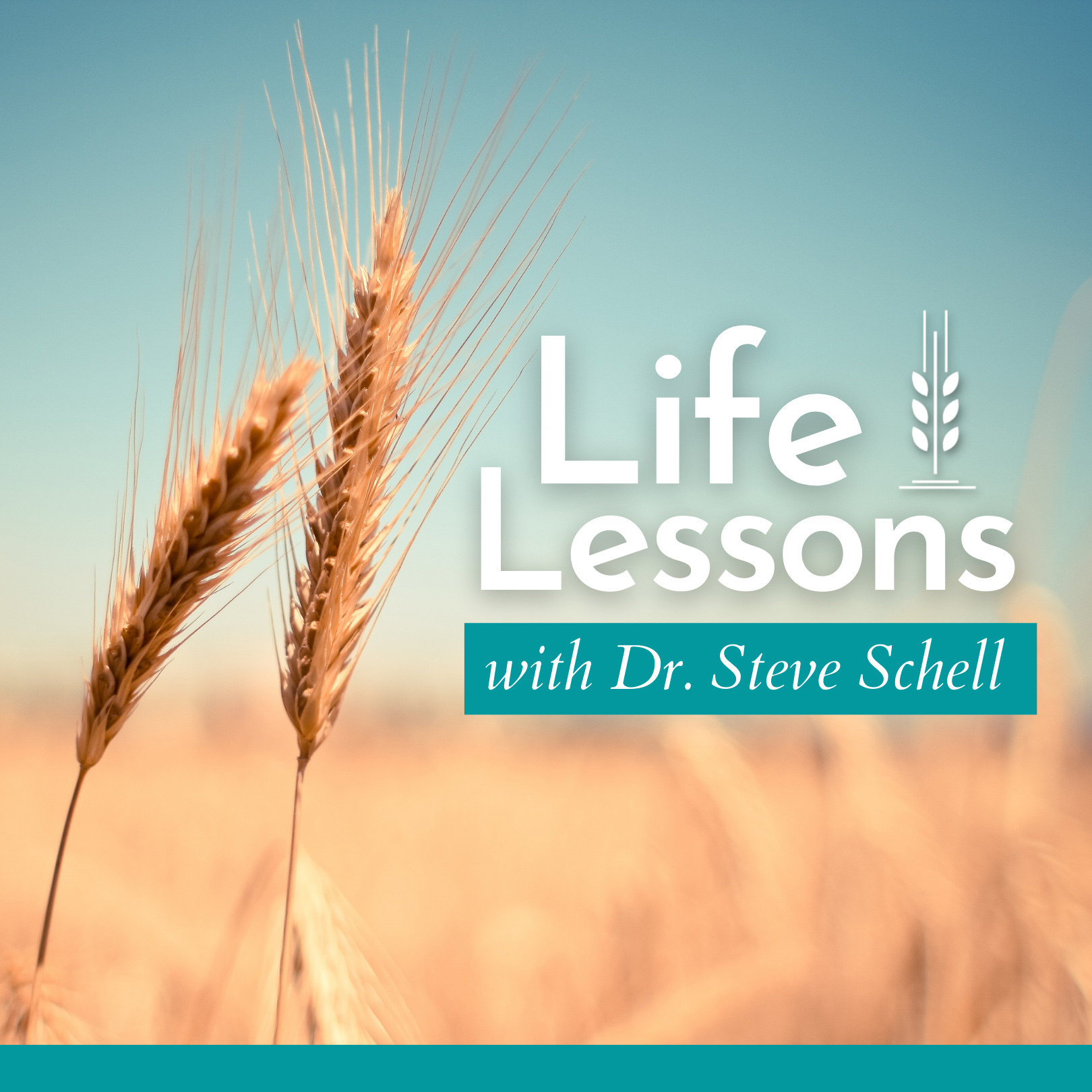
148.7K
Downloads
502
Episodes
Pastor Steve Schell comprehensively teaches through entire books of the Bible pulling out the deep, eternal truths in each section of Scripture without skipping over challenging passages. These sermons will help foster true discipleship for the committed Christian, both young and old.
Pastor Steve Schell comprehensively teaches through entire books of the Bible pulling out the deep, eternal truths in each section of Scripture without skipping over challenging passages. These sermons will help foster true discipleship for the committed Christian, both young and old.
Episodes

Monday Mar 27, 2023
16 - From Slaves To Warriors
Monday Mar 27, 2023
Monday Mar 27, 2023
It’s one thing to be delivered from bondage, but it’s another to inherit our promises. It seems there are always obstacles standing in our way—powerful forces determined to prevent us from possessing those promises. In this case it was the Philistine army who stood between Israel and their promised land. God had the power to give them their inheritance immediately, but He knew they didn’t have the faith to aggressively attack an intimidating enemy. The problem lay in old attitudes that dominated their thinking. Their faith was too small and had they come face to face with the Philistine army they would have turned in panic and run back to Egypt thinking slavery would be better than death. Yet, as a loving Father, God didn’t give up on them but committed Himself to transforming their hearts until they had the courage to take possession of the land. He planned to do this by deliberately leading them into an environment where they would be forced to constantly depend on Him for survival. Over the next two to three years (Nu 10:11, 12) He would confront them with ten different tests (Nu 14:22), and if in these they would turn to Him for help, they would soon discover the greatness of His power and would grow confident that they could succeed at anything He asked them to do. They must stop thinking like “slaves” and start thinking like “warriors” and the “citizens” of a new nation.

Thursday Mar 23, 2023
15 - Traditions
Thursday Mar 23, 2023
Thursday Mar 23, 2023
As Israel prepared to leave Egypt God wanted to make sure they would never forget the important lessons they were learning about Him. He knew human nature tends to quickly forget spiritual lessons and ceases to be thankful. And when this happens people are forced to keep relearning painful lessons, and those who fall into that cycle are prevented from maturing. Forgetting also leads to thanklessness and that is an even greater danger for it allows pride to grow and pride in time will always lift God’s hand of blessing. So to protect them as well as their descendants from falling into this trap He instituted three ceremonies which He wanted to become traditions. He said from the moment they left Egypt onward they were to observe: the feast of Passover; the feast of Unleavened Bread; and the dedication of firstborn sons and livestock. He wanted these events to regularly remind them of the great miracles He did for them, and then He wanted them to talk about those miracles so their faith would be passed on to their children. These were lessons that must never be forgotten, and these were lessons that every generation must learn. Therefore He commanded that they become traditions… memorials built into the patterns of their lives. Today we’ll look at the continuing power of traditions and consider how they can be a blessing to us as well.

Monday Mar 20, 2023
14 - God’s Firstborn
Monday Mar 20, 2023
Monday Mar 20, 2023
Though God’s salvation is a free gift which cannot be earned or deserved, it does leave those who are saved with a great moral debt. We realize we now owe our lives to God. It’s impossible to look at all He has done for us and not feel deep gratitude. Somehow our hearts understand that our only proper response is to give ourselves back to Him. This is the lesson the Lord meant to teach His people by having them dedicate their firstborn sons. They were to never forget that on Passover night their families were rescued from death by the blood of a lamb, so from that night onward their firstborn sons owed their lives to the God who ransomed them. Each would be presented to God and dedicated to His service. They were to live as one who had been given back his life, realizing they should have died but God mercifully spared them.
The lesson of the firstborn son is a prophetic illustration of the life of every believer. We too have been delivered from death by the blood of a Lamb, and therefore we too are obliged to present ourselves before God and dedicate ourselves to His service.

Thursday Mar 16, 2023
13 - Bread From Heaven
Thursday Mar 16, 2023
Thursday Mar 16, 2023
One of the most fundamental barriers to serving God is our apparent lack of resources. We fear that if we follow where He leads, we will end up destitute. Like Israel we stand on the borders of Egypt and gaze into the wilderness and we see in that barren wasteland no possible way of surviving. We find ourselves caught between God’s call to follow and our own logic which says this is impossible. But it’s in the wilderness that we discover God’s commitment to us. Our own resources quickly run out leaving us in desperate need and this desperation forces us to turn to God for help. And when we do, we see Him miraculously meet our needs again and again.

Monday Mar 13, 2023
12 - A Place of Refuge
Monday Mar 13, 2023
Monday Mar 13, 2023
As our nation and the world move toward what the Bible refers to as the “last days” we see disturbing trends around us which leave us feeling confused and alienated. Why are people so committed to tearing down God’s moral standards? Why such hostility toward Jesus Christ? Who in their right mind could be so hateful as to bomb innocent people and then celebrate as if they had done something heroic? Where is all this headed? The forces behind these trends seem relentless. But at the same time we see people coming to Christ all over the world in great numbers. We see the Holy Spirit moving as powerfully today as in the pages of the Book of Acts. We see churches growing in size and influence beyond anything ever seen in history. So it seems the world is polarizing. Spiritual darkness is getting darker and God’s light is getting brighter. And that, of course, is exactly what the Bible says will happen in the “last days.” But this knowledge alone doesn’t prevent us from growing frightened by the swelling spiritual conflict we see everywhere we turn. In fact, if we don’t learn to walk in God’s promises, we’ll find ourselves wanting to withdraw from life and hide. That’s why the Book of Exodus is so good for us to read. It shows us how God can protect His people even when we’re surrounded by dangerous forces. It reminds us that He is our “place of refuge.” Even in the darkest of times we do not need to fear. We can live boldly under His protection and full of hope as we wait for His deliverance.

Thursday Mar 09, 2023
11 - The Reward of Obedience
Thursday Mar 09, 2023
Thursday Mar 09, 2023
Every time we deliberately say “no” to God we harden our own hearts, and every time we say “yes” to Him we become softer. By making us in His own image, God has given us the power to choose and that ability means we are responsible for the choices we make. This passage in Exodus concludes with the statement, “But when Pharaoh saw there was relief he hardened his own heart and did not listen to them as the Lord had said” (v 15). In order to understand what was taking place in Pharaoh we will first listen to a remarkable explanation about human choices Jesus gave in Matthew 13:10–17. Next we will distinguish between ignorance, defiance and obedience. And finally we’ll discover that by obedience God draws us closer and closer to Himself. An obedient heart leads to a relationship of great intimacy and understanding as “friends of God.”

Monday Mar 06, 2023
10 - Hardening Pharoh’s Heart
Monday Mar 06, 2023
Monday Mar 06, 2023
This passage raises a subject which has been debated for centuries. Does the statement that God “hardened” Pharaoh’s heart mean He actually prevents some people from repenting and being saved. Throughout the next five chapters there are repeated references to hardening Pharaoh’s heart along with statements to the effect that Pharaoh then refused to submit to God’s demand to release the Hebrew slaves. Taken from one perspective, God appears to be playing a cruel game with Pharaoh. While ordering him to release the Israelites and performing stunning miracles powerful enough to convince any normal person that God was real and meant what He said, at the same time God miraculously prevented Pharaoh from changing his mind. This view makes Pharaoh a tragic figure in a great cosmic play. He’s being given commands and then prevented from obeying them with the result that his entire nation is forced to endure a series of devastating plagues. Those who assume this is what is taking place recognize it puts God’s character in a bad light: it makes Him look cruel and arbitrary. His demands to Pharaoh are insincere because the man is not permitted to say “yes.” But they justify this understanding by turning to Paul’s statement in Romans 9 which again seem to support them, and there the question is asked, “…Who are you O man, who answers back to God?” Paul goes on to argue that since God is the one who makes humans, He can use them anyway He wants to (Ro 9:19–23). Some feel this should silence any complaints about fairness. After all, He’s God and can do what He wants to. Today we’ll take a fresh look at the hardening of Pharaoh’s heart because the very character of God is at stake. Is God loving and just, desiring to save every person He can? Or are there some, like Pharaoh, whose hearts He hardens?

Thursday Mar 02, 2023
9 - Drawing Closer
Thursday Mar 02, 2023
Thursday Mar 02, 2023
There are different levels at which people tend to relate to God:
- There are those who call on God only when they need help.
- There are those who recognize their sinfulness and call on God for forgiveness (confess and repent; trust and submit)
- There are those who regularly meet God personally and fall in love with Him (worship and pray)
- There are those who let God’s presence transform them until they are filled with His love for others (serve and witness)

Monday Feb 27, 2023
8 - A Deliverers Family
Monday Feb 27, 2023
Monday Feb 27, 2023
One of the key ingredients for true discipleship is learning how to be part of a family—whether that be our natural family or the family of God. Learning to live in a committed way with people is a tremendous challenge for all of us. Nothing confronts our character so much as living with other people. Our weaknesses are exposed, our selfishness confronted and our love is tested. But as ironic as it may sound, these are some of the things that cause us to mature as disciples of Jesus Christ. Proverbs (27:17) captures this idea when it says, “iron sharpens iron, so one man sharpens another.” It’s the friction that takes place between people that fits us for service. At least it does in people who submit to the Lord and seek His help. These learn to forgive, repent, pray, wait, love, serve, submit and lead. Those who run away from this process tend to remain immature and never realize their full potential for ministry.
Today we’re going to learn some valuable lessons about family by observing a very painful moment in the marriage of Moses and Zipporah. Yet, it teaches lessons that both and women need to hear because some of God’s attitudes about family are clearly revealed here. And after all, “family is God’s idea (Eph 3:14, 15). He’s the One who calls us into family.

Thursday Feb 23, 2023
7 - Standing Firm
Thursday Feb 23, 2023
Thursday Feb 23, 2023
If we’re going to be free and inherit our promises we’re going to have to learn to fight. Just because something is God’s will for us doesn’t mean it will come easily or without opposition. In fact, there are always forces which oppose the advancement of God’s kingdom. Whenever God’s power is breaking into darkness with salvation, healing, restoration, deliverance, love, guidance or provision, we can expect a counterattack from the enemy. So we have to learn to fight, but the battle we experience primarily takes place in our own minds. When the devil’s backlash comes we tend to become discouraged, allowing negative thoughts to quench our hope.
This chapter of Exodus vividly exposes the heart of the devil. Working through Pharaoh we see a cruel personality which wants to keep people in bondage and oppose the work of God. We learn that the devil will not stand back passively and release people even when God commands it. Instead of giving up and slinking away quietly he reacts using his own arsenal of weapons. But Exodus brings us good news. It shows us God’s power far outweighs the devil’s, so we can be confident He will deliver us if we only learn to stand firm.
